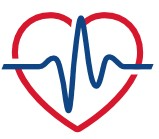(ECSI) CPR/ AED 7:00 – 9:00am
(Weekly on Monday)
Overview:
CPR and AED is ideal to train and certify lay responders. This training center integrates teaching and learning systems that offers many resources to better prepare students to learn life-saving skills.
CPR and AED training includes:
- Current information on CPR, AED, choking and airway obstruction.
- New and updated content on back blows for adults, encircling thumbs CPR technique for infants, opioid overdose response, compression-only CPR, and COVID-19 precautions.
(ECSI) First Aid 6:00 – 8:00am
(Weekly on Tuesday)
Overview:This First Aid course is developed for use and designed to certify individuals in first aid and fulfill workplace training requirements.
First Aid (FA) training includes:
- Current information on injuries and illnesses: Core information for first aiders presented in a clear and concise format.
- Skill Drills: Offer step-by-step explanations and visual/ hands-on summaries of important skills.
- Emergency Care Wrap-Up Tables: Provide a concise summary of symptoms and what treatment steps they should take.
(ECSI) CPR/ AED/FA 8:00am – 12:00pm (Weekly on Tuesday)
Overview:Standard First Aid, CPR, and AED is ideal for use within training courses designed to certify individuals in first aid, CPR, and AED.
CPR/ AED/FA training includes:
- Emphasis on life-threatening conditions and focus on critical life-saving skills.
- Decision tables that provide a concise summary of what signs to look for and what treatment steps to take during an emergency. Current information on CPR, AED, injuries, and illnesses.
- New and updated content on hemorrhage control, opioid overdose response, compression-only CPR, and COVID-19.
(ECSI) Bloodborne and Airborne Pathogens 6:00 – 8:00am
(Weekly on Wednesday)
Overview:
Bloodborne and Airborne Pathogens Instruction and Lecture is designed to enhance participants' understanding of bloodborne and airborne pathogens on the jobsite. The training you receive can be applied anywhere.
Bloodborne and Airborne Pathogens training includes:
- Up-to-date information consistent with Occupational Safety and Health Administration (OSHA) compliance.
- New coverage of COVID-19 and Ebola Virus Disease.
- Detailed discussion on prevention and treatment strategies, exposure control plans, and postexposure management for bloodborne and airborne pathogens.
(ECSI) Basic Life Support (BLS) for the Health Care Provider CPR (Professional)
8:00am – 12:00pm
(Weekly on Wednesday)
Overview:
Basic Life Support (BLS) for the Health Care Provider, is ideal to certify health care providers in CPR and AED. This learning system prepares students to learn life-saving skills.
Basic Life Support (BLS) for the Health Care Provider training includes:
- Clear, concise, and current information on what signs to look for and what treatment steps to take during an emergency, including how to perform CPR and use an AED.
- Updated coverage of bloodborne and airborne diseases, including precautions to take in response to the COVID-19 pandemic.
- A focus on soft skills, relating to team-based resuscitation.
(ECSI) Standard First Aid, CPR, and AED & Bloodborne and Airborne Pathogens
7:00am – 1:00pm
(Weekly on Thursday)
Overview:- Standard First Aid, CPR, and AED & Bloodborne and Airborne Pathogens.
- This learning system prepares students to learn life-saving skills.
Standard First Aid, CPR, and AED & Bloodborne and Airborne Pathogens training includes:
- Emphasis on life-threatening conditions and focus on critical life-saving skills.
- Decision tables that provide a concise summary of symptoms and what treatment steps to take during an emergency.
- New and updated content on hemorrhage control, opioid overdose response, compression-only CPR, and COVID-19.
(ECSI) Standard First Aid, CPR, and AED & Bloodborne and Airborne Pathogens
7:00am – 1:00pm
(Weekly on Thursday)
Overview:Standard First Aid, CPR, and AED & Bloodborne and Airborne Pathogens-Blended. This Blended learning system prepares students to learn life-saving skills.
This course is provided to blended students only and includes:
- This course combines in class written testing and skills testing for certification.
- Emphasis on life-threatening conditions and focus on critical life-saving skills.
- Decision tables showing signs to look for and what treatment steps to take during an emergency.
- Current information on CPR, AED, injuries, and illnesses.
- New and updated content on hemorrhage control, opioid overdose response, compression-only CPR, and COVID-19.



